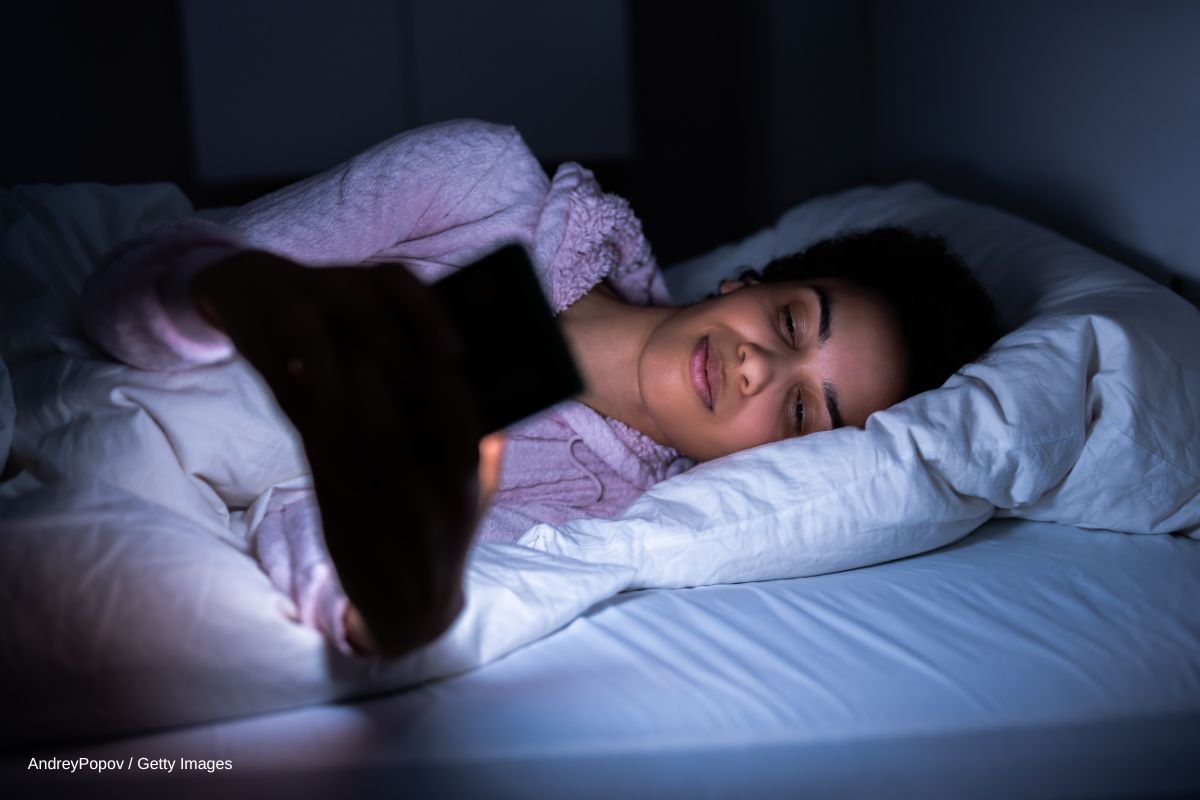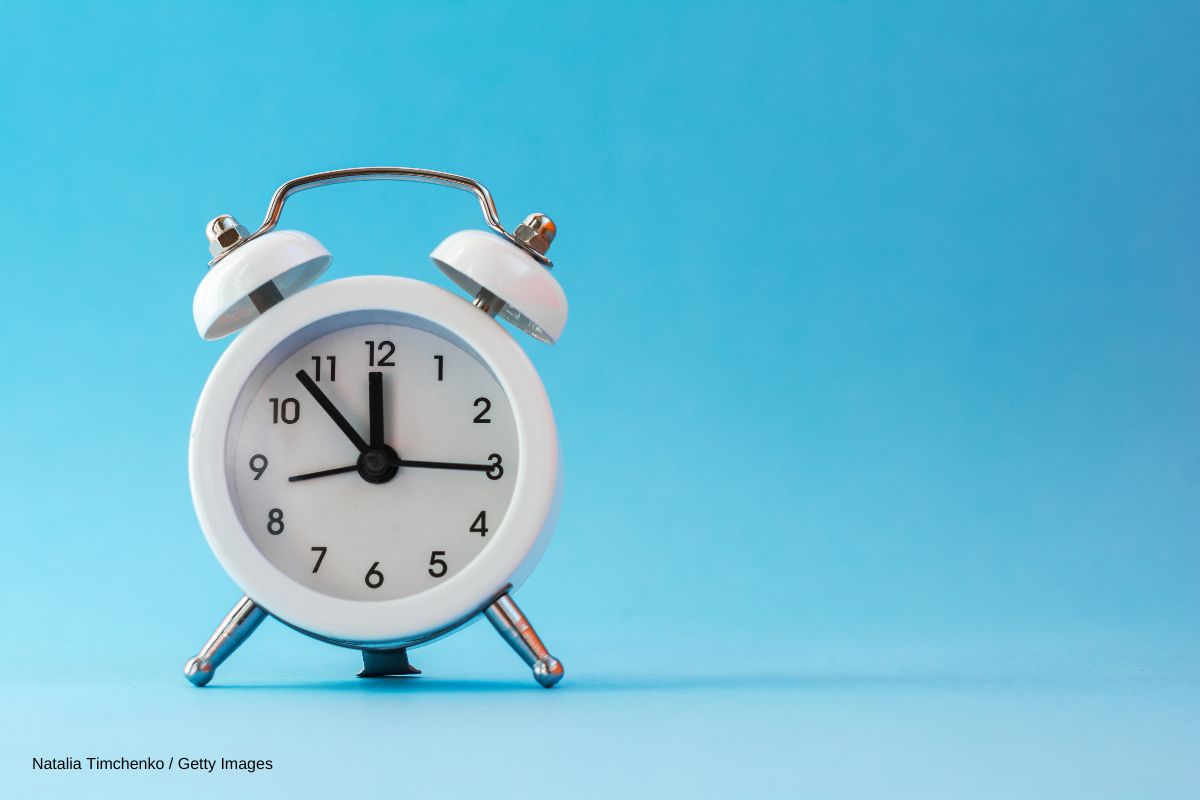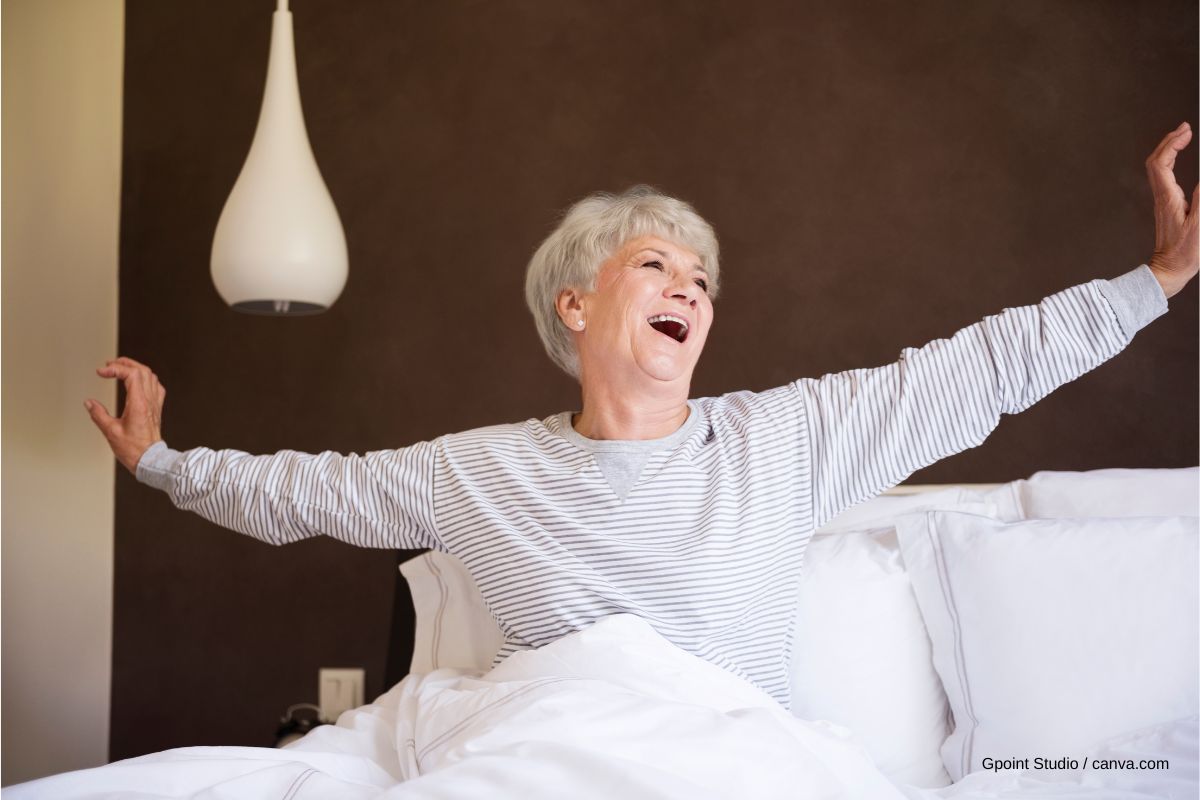Interesting facts about the circadian rhythm

Like many natural processes, the human circadian rhythm follows a certain pattern. Influenced by the alternation of brightness and darkness, our body functions quite differently during the day than at night. While we are full of energy and productive during the day, our body switches to rest mode at night and demands its rest. We'll tell you why it pays to live in harmony with your inner clock and why your personal biorhythm can differ from that of other people.
Why is it so difficult for us to maintain a healthy circadian rhythm?
Getting enough sleep is essential for our well-being. The right bedtime often determines how well rested we feel the next morning. Indeed, the time at which you go to bed affects the quality of your night's rest as well as your energy levels when you wake up. Whether you feel rested and relaxed or tired and irritable depends on how balanced your circadian cycle is. If you follow your internal clock, the physical processes can run smoothly and consequently you enjoy a better quality of sleep.

But in today's world, it can be a challenge for many people to maintain a healthy circadian rhythm. Perhaps you can't switch off your mind at home after a stressful day at the office and have to distract yourself with TV or your smartphone to block out your inner restlessness. This quickly pushes your natural bedtime back and your body gets out of sync. But what exactly controls our inner clock and our biorhythm? And is it the same cause for all people?
What controls our internal clock?
Many of the body's processes run rhythmically – including the human circadian rhythm. Over thousands of years, our body has adapted not only to the change of seasons, but above all to the course of the day. At night, we therefore function very differently than we do during the day. In the past, this ensured our survival: during the day, we had to be fit and efficient in order to provide food, whereas at night, our bodies demanded their well-deserved sleep so that we could recover sufficiently. Even though our modern everyday life differs in many respects from the days of hunters and gatherers, our organism is still attuned to the regular alternation of sleep and wakefulness phases.

In addition to the sleep and wake phases, our inner clock also regulates our circulation and controls, among other things, our heart rate and blood pressure. But while we are not normally consciously aware of these processes, we are aware of the workings of our inner clock in other areas. For example, it is quite natural for us to orient ourselves to the brightness of the day and the darkness of the night in order to structure our day. While morning sunlight encourages us to get up, nightfall tells us it's time to go into rest mode. Darkness increases the release of the sleep hormone melatonin, which makes us tired and signals that it's bedtime. Interestingly, the circadian rhythm varies from person to person, meaning that our natural bedtime differs from one individual to the next.
Why do our sleep-wake cycles differ?
 Surely you have heard about the different chronotypes of owls and larks. Those prove that one's inner biological clock gives each person his or her own personal rhythm. As a lark, you are a natural early riser and have a lot of energy and drive early in the morning, while your performance slumps in the evening and you go to bed early.
Surely you have heard about the different chronotypes of owls and larks. Those prove that one's inner biological clock gives each person his or her own personal rhythm. As a lark, you are a natural early riser and have a lot of energy and drive early in the morning, while your performance slumps in the evening and you go to bed early.
 People who belong to the owl chronotype, on the other hand, are natural morning grouches who have trouble getting out of bed in the morning. In return, they can stay up late in the evening without any problems and are still able to perform even late at night. Which chronotype you personally belong to and which circadian rhythm you follow is most likely genetically determined. At least, this is what studies suggest that have compared the sleep behavior of identical and fraternal twins.
People who belong to the owl chronotype, on the other hand, are natural morning grouches who have trouble getting out of bed in the morning. In return, they can stay up late in the evening without any problems and are still able to perform even late at night. Which chronotype you personally belong to and which circadian rhythm you follow is most likely genetically determined. At least, this is what studies suggest that have compared the sleep behavior of identical and fraternal twins.
What can I do for a balanced circadian rhythm?
Every one of us wants to feel fit and vital when we wake up and be able to fall asleep gently at night. For this to succeed, we need to live in harmony with our natural circadian rhythm. This means that you should listen more to your body in order to follow your own personal inner clock. When you start listening to internal rather than external signals, it quickly becomes clear that your body is sending you clear messages. Your body knows exactly when it has sufficient energy to be active or when it needs a period of rest.

To find the best conditions for a restful night's sleep, you must therefore learn to work WITH your body. This starts with the right sleeping environment: For you to get tired and for your body to release the sleep hormone melatonin, your bedroom should be dark. Avoid artificial blue light and instead opt for warm, reddish light. Ideally, you should go to bed between 9 p.m. and midnight. This bedtime is optimal as you wake up the next morning with the sun's rays. If you go to bed too late, you miss the precious morning light, and your inner clock gets out of sync. Good news: you can adjust this time window to your personal chronotype. As an owl, you don't have to be in bed at 9 p.m. sharp if you don't feel tired at all. However, you should get into the habit of closing your eyes at midnight at the latest. Remember that we usually live according to the rhythm of early risers: most of us have to get up early in the morning in order to be at work on time. If you don't go to bed until after midnight, you may not get enough sleep to feel alert and refreshed the next morning. Instead, use the weekend to sleep in and stay up late without permanently upsetting your own circadian cycle.
Photo credits:
spooh / Getty
Images
AndreyPopov / Getty
Images
Natalia Timchenko / Getty
Images
Sameer Desai / Getty
Images
Alexas_Fotos / pixabay
Gpoint Studio / canva.com
